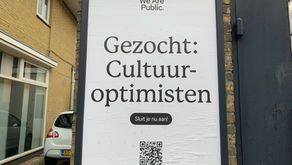International Women's Day
- Judith Weir
- Mar 12, 2016
- 2 min read

As we know, enterprises involving women go much further back in history than is generally credited. I only learned recently that International Women’s Day dates from 1909 (originally a socialist event from pre-Soviet Russia). Since student days I’ve attended all manner of 8th March events, often far away from music, often wacky and fringe-y, and all the more enjoyable for that. It’s only a couple of years ago, for me, that IWD became a professional activity, with BBC Radio 3’s bold decision to broadcast women’s music only throughout 8th March.
I’ve heard R3’s Controller Alan Davey say that he was warned off this enterprise by classical music programmers from other countries who told him that they too had considered taking such a step, but “there’s not enough music”. However, when I arrived at Maida Vale Studios on IWD, conductors Jessica Cottis and Grace Rossiter were having the opposite problem, working out how to fit music by ten women composers into a slim rehearsal slot. I greatly enjoyed the resulting concert by the BBC Symphony and Singers, particularly Virga by Helen Grime (already an international classic) Helios, Thea Musgrave’s fascinating oboe concerto and a new setting of the Stabat Mater by the extraordinary Alissa Firsova.
In an interesting mid-concert interview with Sara Mohr-Pietsch, Jessica Cottis was asked whether she had had any role models when growing up (a regular thing to be asked on IWD). Being Australian, Jessica had been unusually well-placed to see a hugely successful woman conductor, the great Simone Young, in action. But, she said, at the time Young seemed ‘like some magical creature’, not necessarily giving her the idea that such a job would be natural for her. And indeed when she arrived at London’s RAM as a conducting student, she was always the only woman in the class. However, she reported a sea change in the situation, possibly since Marin Alsop’s first appearance at the Last Night of the Proms in 2013. Today that RAM conducting class is 50% women. Presumably there wasn’t time in the interview to point out that it now has a woman head of department, the excellent Sian Edwards. (The RAM’s opera department is also headed by a distinguished woman conductor, Jane Glover.) This seems significant. And, for composers, still rare. If you have time, look up the staff lists at our UK conservatoires and count how many women composition teachers there are at each. Binary arithmetic will do; the number varies between 0 and 1 per institution.
Pictured, Sara Mohr-Pietsch, Grace Rossiter, Judith Weir






